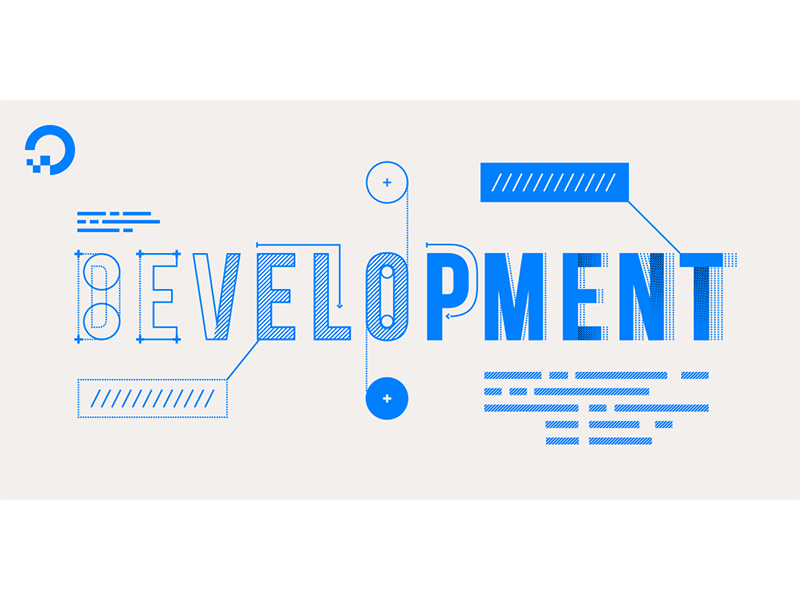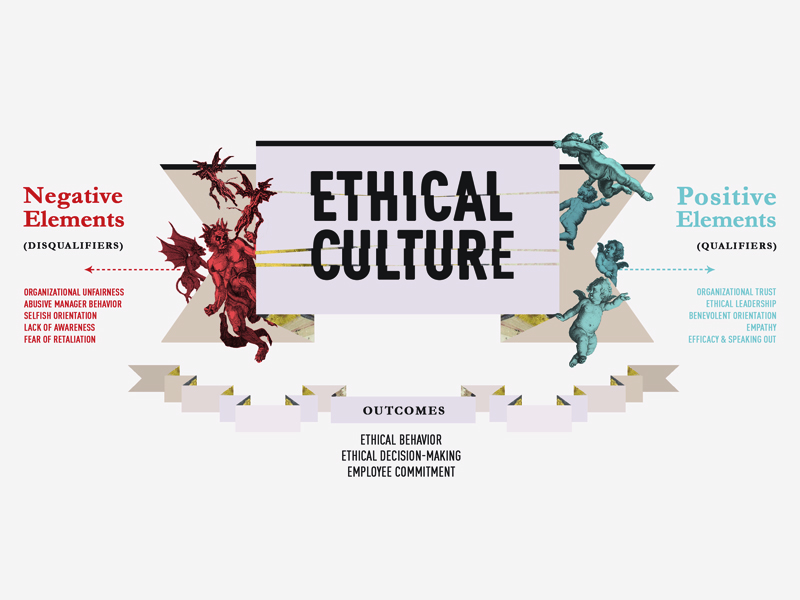Building for the web of today
At the same time, that is a lot take care of. Speaking of web and mobile design and development services, we need to concentrate on users first.
Users want to be firmly understood, taken care of, and feel good about using a digital product.
Those are key focus points of the industry no matter what type of product you are building. The content we produce has to be SEO-friendly, interesting, and relevant. The design has to be exclusive. The code has to be legible, editable, and clear for later revisions.
Also. apart from the purely technical requirements, the demand for today’s digital production has changed to fit the new reality. Compromised security, data manipulation, newsfeed wars, and signs of infocalypse – these are all challenges of modern digital production and who knows what else is coming.
These are intimidating for us, professionals of web development, but how alien might they seem to the people outside the tech startup world? It’s our core responsibility to navigate them through these murky waters we call online presence.
Unfortunately, a lot of times it’s the vendors of the service that need some proper guidance.
The majority of development agencies do not position themselves as business analysts with advanced digital application capabilities. This trend created the niche for the so-called “IT body shops”, meaning they only do implementation regardless of the industry insights. This translated perfectly into the dissatisfaction by the services some clusters of development firms provide. Whole regions can fall victims of this perplexity.
With the course of time, business owners adapted to the issues and started fixing them by saddling themselves with more tasks.
They started being the architects of their digital products, they had to become the visionaries of UX, decide whether to push productivity and performance or leverage accessibility.
Some did a great job at that and became real startup gurus without even being familiar with coding or prototyping. The majority though keeps watering down the market with low-quality apps and spending money on ideas taken the wrong way even if they are initially good. After all, it shouldn’t be a business owner’s job to make design decisions, consider backend capacity, and write tech documentation.
Digital service vendors have to be responsible for not only the execution but also the viability of the product, its visual appeal, and the methodology it is being built according to.
The client’s main concern has to be achieving business goals. We have to be instrumental in that. That means you have to operate on the level of understanding close to the client’s. Some aspects of design will forever be client’s territory, like choosing imagery for example. However, it’s a web designer’s job to educate the client when needed. Same with content writing. If there’s a problem with the attainment of a brand’s voice, it has to be synthesized of multiple variables.
A product does not have to be the reflection of the owner’s soul.
The times when IT gurus would work their magic and somehow make your website (not) work have passed. Now owners look to be in control of every aspect of their business. Fair enough but do they need to be a part of every feature and make every decision based on the gut feeling or intuition? In fact, the client has to be in charge of their business assets but not of how these assets are built.
We rely on doctors, pilots, architects, car engineers every day of our life, then why can’t the same be applied to development? I think the answer is simple. Being in one of the mentioned professions means being validated by authorities. Licensed, authorized, approved, permitted. What kind of license do we in the web & mobile design & development realm have? Nothing but our good name. Well, a good name doesn’t come for no reason. It has to be earned. Part of the process of earning it is being devoted to core principles.

Image credit: Kasia Bojanowska
Following the core principles of development
The mechanisms behind the opportunistic product development practices is entirely natural. Where do you start when everything is urgent? How do you strategize when nothing but the deadline is definite? What to prioritize when no reference is existent so far? When everything is high-stakes, nothing really is.
Let the client’s vision shine in the selection of images and typography, or better, defining the mission statement of the brand/product, and other important stuff while we’ll work on building a solid foundation for all that follows.
Principle: The reason it all exists
The reason a digital product has to exist is not because everybody has it. The decision to proceed to building a web or mobile app is it has to provide value to the users. Before anything is built, analyze the pitch by asking whether the features of the product add any value to the lives of the people. If the answer is “no”, work with a client to find a way to change the idea so that it would.
Rely not on the general judgment, as value can be a relative category, think big, explore, and research the matter.
Core: don’t have bias and don’t neglect the footwork.
Principle: Keep it simple, stupid! (KISS)
After the value has been found, it’s important to keep it safe. Clients may have so much much passion for the product that it almost does them a disservice. They could turn the project into a spazzy process with features piling up and dissolving the value. Everything, starting from design has to be simple but not simplistic or raw. In fact, it takes more time and effort to build an elegant solution.
Things will pay off with better performance, maintainability, and less stress while building.
Core: concentrate on the gist, avoid temptations.
Principle: Maintain the vision
Every project taken to a further stage of development may face the problem of critical choice. Most of the times, it comes from the financial aspect and requires a great deal of thought before the pivot is made. In that sense, having a clear vision is essential to the success of the project. Without an underlying integrity, the product is in danger of becoming a patchwork of incompatible features, held together by duct tape.
That’s why the two previous principles should work together to ensure the vision clarity at all stages.
Core: don’t force yourself into a trap of functionality choice.
Principle: What you produce, someone will use
It’s important to understand not only how and why your users will use the product, but also how it will come to them, what types of users will it summon, and what are the variables of that interaction. You won’t be able to predict all the circumstances of this interaction, but everything will work better if you remember that there will be someone relying on their understanding and the usability of the product in accomplishing a variety of goals.
Have these people on your side, as well as the ones that might be working on design and code after you.
Core: think how to make whoever will be using or working on your product after you, happy.
Principle: Be open for the future
With today’s short attention span, it’s vital for a digital product to not only pass the test of time but constantly prove itself all along. For this, the product has to be solid yet sensitive and adaptable to whatever comes our way. Finding a comfy niche is never enough if the client is looking past just selling the product to a major player.
It’s a never-ending process of development that leads to timeless relevance.
Core: maintain integrity while constantly looking what’s on the other side.
There is a common constant that unifies all the principles and it often goes unnoticed. It’s the thinking that you approach every project that makes a difference. With every accomplished task, you not only pass the feature to test-ready only to shut down the sprint, you are also leveling up your game. It’s either positive experience or a bunch of bumps and bruises that are also a learning experience.
The more patterns you collect, the better are your chances to actually help a client not only implement their assumptions, but take it to the level they haven’t dreamed of. This is what makes your good name. This is where the most reward is.
There is more to it though than just a successful workflow. It’s the chemistry. And the chemistry is not a flow-chart category. It’s the category of emotions and ethics.

Image credit: Sarah Edmands Martin
Ethics in digital production
Since computers captured all aspects of our life, it’s weird how it never really touched upon the possibility of being regulated by something other than media-like regulation rules. Different companies roaming free on the market and if any, have their own understanding of social norms, values, and ethical standards. Never before has the idea of regulating what’s being built for the internet, been entertained further than porn resource regulation.
Blocking doesn’t really work, the dark web is flourishing which takes us to the point where if the changes can’t be imposed, they have to come from within. Nothing else works with the internet.
However, the issue has been brought forth so much as in the light of the past events. As Yonatan Zunger famously wrote:
“[The transition from physicist to computer scientist] gave me a specific perspective on this situation. That the field of computer science, unlike other sciences, has not yet faced serious negative consequences for the work its practitioners do.”
The Wild West of the internet has to go at some point and it looks like the time is now. Major nefariousness cover-ups, huge misinformation campaigns, Cambridge Analytica controversy, and so on. The role of digital products originally built for entertainment has passed the point of no return. You can’t design and develop for fun anymore.
Everything you put out these days has to be checked on the potential harmful features. Sort of… In reality, there is no way to definitively predict every possible outcome of every piece of technology produced. All the responsibility falls on those who ideate, design, and build digital products.
With most of the developers being a hired force, they are constantly under pressure of meeting technical requirements and deadlines. Given additional variables like cross-cultural and cross-department communication, we have our hands full. In most cases, the question of ethics doesn’t rise up until a precedent. The only code of ethics developers tend to stick to is that of an ethical human being in general. It involves openness, courage, respect, focus, and commitment. These alone give a solid foundation to fall back to in times of confusion.
Asking yourself whether you are doing the right thing is a powerful validation tool that comes from the inside.
The power of technology among other things is the ambiguity. You can use it to make the world a better place or ruin it.
Beating swords into plowshares
Everything complex can be used for the good or the bad. In fact, what has started good can turn on you in a heartbeat. Our enthusiasm for AI can lead us to the darkness where no one is able to tell the lies from the truth. If we can’t change the nature of progress, all we can do is follow some code of conduct which benefits have to be clearly visible and appealing.
This is where influencers can take a stand. Until the society, at least its Western part follows general Christian moral, there is a chance of protecting beliefs. In a the extremely toxic environment of today’s freedom, all we can rely on is spiritual bonds promoted by the people whose personalities is greater than hashtags and fads. Until we come to a standardized code of ethics for technological development, all we can rely on is teaching people to ask the right questions and make the right choices.
As humanity, we’ve been through this before. The turning point became the invention of the nuclear weapon. It divided the history of humankind into the ‘before’ and ‘after’ periods and put us into the world of impending doom.
We know we can build anything, but do we have to?
Perhaps the deep-rooted Guns, Germs and Steel attitude will seize someday when we realize how much impact everything we create has. If AI reflects all our worst vices sevenfold, will we finally shift our focus from earning more to giving more?
There is a premise for a code of ethics in technology and there is an inner urge to use the power of digital industry for a good common cause. Our time can be the tipping point of the new ethical tech development era and it’s exciting to be a part of it.
